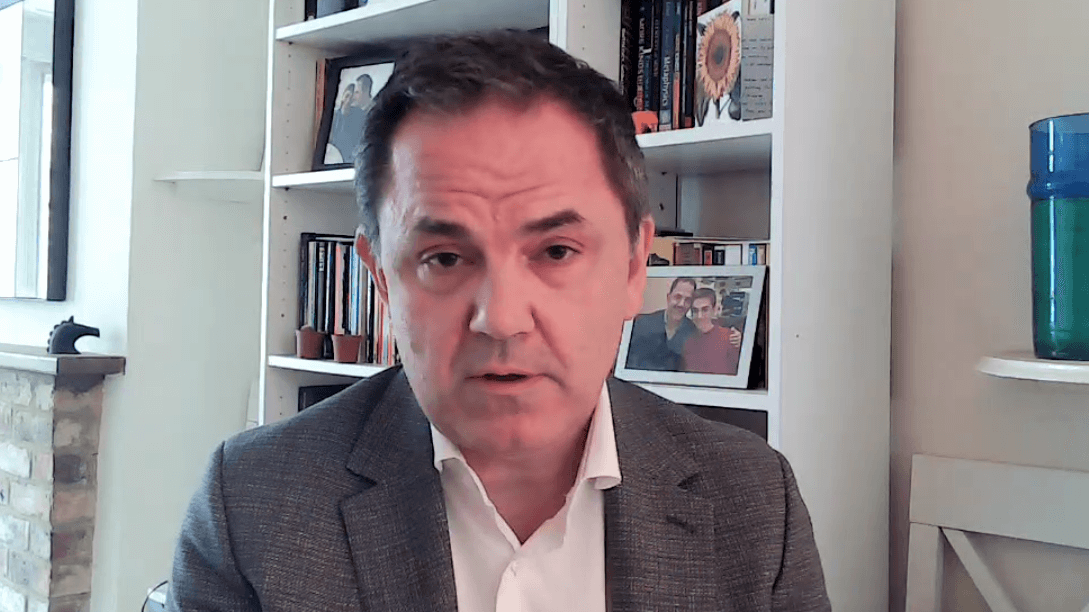Professor John Tasioulas, the Director of the Institute for Ethics in AI at the University of Oxford was the distinguished guest at the latest IEAI Virtual Speaker Series, which took place on July 15, 2021. His presentation was centered on the uneasy relationship between human rights and public health, as well as the lessons learned from Covid-19 and AI.
Prof. Tasioulas discussed how the Covid-19 crises has shown, not only how poorly prepared some advanced democracies were in facing such crises. In fact, the UK and US, which were placed at the top of the Global Health Security Index in October 2019, but ended up experiencing significant difficulties in controlling the spread of COVID-19 before the availability of the vaccines. Preparedness for a health crisis has many dimensions, however, this talk focused on vigilance in terms of the ethical categories we bring to bear in addressing such crisis. The need for clear articulation of our goals in health policies is essential to avoid making controversial value judgments. Converting a political value judgment into a matter of technical expertise cannot be useful in public policy contexts, as science cannot demonstrate how civil society should act in these circumstances.
The second part of the talk focused on the intellectual vigilance dealing with the Covid-19 pandemic. Grasping the relevant values which are at play and the relationship between those values. Philosophy can hold a vital role in helping with such preparedness by interrogating some of the key ideas we need to analyze, when thinking about such challenges.
The failure to understand human rights and how they relate to relevant values has been obstructing the formulation of clear and justified policies in response to the Covid-19 pandemic.
These issues have been caused by two mistakes, the definition of the scope and content of such rights, as well as the relation of human rights to public health. The right for health overlaps with several entitlements, as many factors affect our health, for example: employment or housing. However, the right to health is specified without the definition of obligations, which ultimately becomes challenging for governments in implementing them. The broad understanding of the content of the rights, seems to suggest that being overridden is a systematic feature of rights, whereas rights should simply be obligations to the right holder, which would be wrongful to violate. In conclusion, rights should generate very demanding moral obligations to governments that can be overridden only in exceptional circumstances.
The final part of the presentation focused on the relation of human rights, public health and democracy. Human rights and public health are not mutually exclusive, respecting human rights is the way that can bring about the chance to realize the health goals. Moreover, the balance between rights and health is influenced by a common good. A clear example is the role that solidarity has played in promoting health during the Covid-19 crisis. Common goods are defined by three main factors: they serve equally in everyone’s interest and by serving an individual’s interest it may not take away the same opportunity from someone else. Having a clear understanding of the common good, defeats the conflict between benefits and burdens across all people respectiviely. However, new technologies, pose a new threat to alter the precarious balance between rights and health, especially when used by authoritarian regimes. Nonetheless, Prof. Tasioulas analyzed the example of Taiwan, where digital technologies have been facilitating more radical democratic ways of governance. In Taiwan participative community digital tools have been gathering the opinions of citizens and synthesizing them into insights that can be included into the decision-making processes. Moreover, digital tools to tackle disinformation campaigns have been deployed, without the necessity to censor, by requiring systems to correct false claims within two hours. In conclusion, he suggested that democracy can be part of the ethos that best secures human rights and public health alike, by fostering the citizen’s solidarity that both factors require.
We would like to thank Prof. Tasioulas for the enlightening talk and discussion! We also had the pleasure to ask a few more questions to Prof. Tasioulas in our Q&A.

